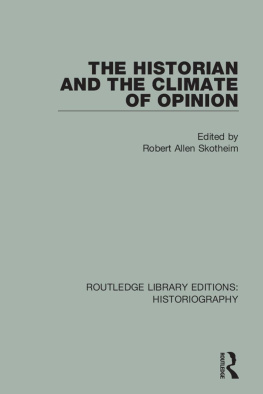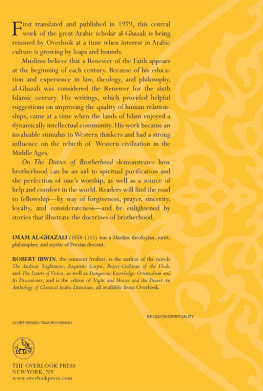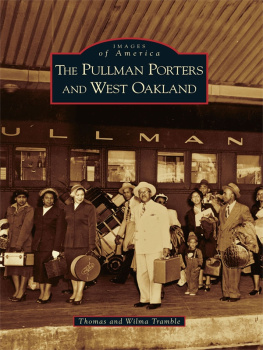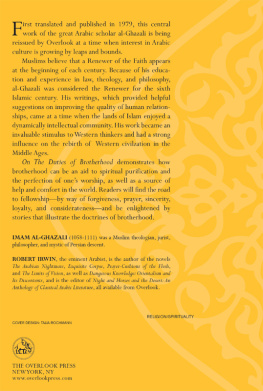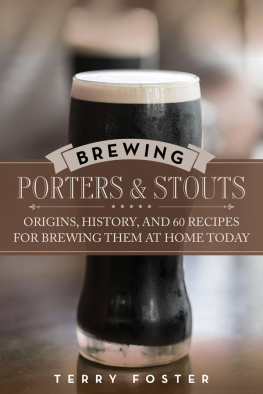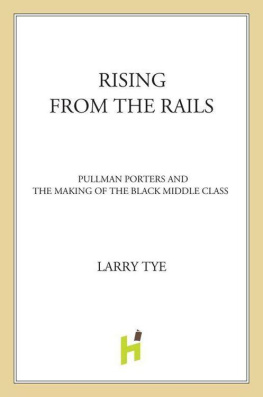THE BROTHERHOOD
OF SLEEPING CAR PORTERS
THE BROTHERHOOD
OF SLEEPING CAR PORTERS
C. L. DELLUMS AND THE FIGHT FOR FAIR TREATMENT
AND CIVIL RIGHTS
ROBERT L. ALLEN
Based on an Oral History by Joyce A. Henderson
First published 2015 by Paradigm Publishers
Published 2016 by Routledge
2 Park Square, Milton Park, Abingdon, Oxon OX14 4RN
711 Third Avenue, New York, NY 10017 USA
Routledge is an imprint of the Taylor & Francis Group, an informa business
Copyright 2015, Taylor & Francis.
All rights reserved. No part of this book may be reprinted or reproduced or utilised in any form or by any electronic, mechanical, or other means, now known or hereafter invented, including photocopying and recording, or in any information storage or retrieval system, without permission in writing from the publishers.
Notice:
Product or corporate names may be trademarks or registered trademarks, and are used only for identification and explanation without intent to infringe.
Library of Congress Cataloging-in-Publication Data
Allen, Robert L., 1942
The Brotherhood of Sleeping Car Porters : C. L. Dellums and the fight for fair treatment and civil rights, 19251978 / Robert L. Allen ; oral history interview conducted by Joyce A. Henderson, (Regional Oral History Office, University of California, Berkeley).
pages cm
Includes bibliographical references and index.
ISBN 978-1-61205-549-7 (pbk. : alk. paper)
1. Brotherhood of Sleeping Car Porters. 2. Pullman portersHistory. 3. African American labor union membersHistory. 4. Discrimination in employmentUnited StatesHistory. 5. Race discriminationUnited StatesHistory. 6. Dellums, C. L. (Cottrell Laurence) I. Title.
HD6515.R362B762 2013
331.881138522dc23
2013033301
C.L. Dellums: International President of the Brotherhood of Sleeping Car Porters Union and Civil Rights Leader (interview by Joyce A. Henderson, Regional Oral History Office, Bancroft Library, University of California, 1973), cited in the text as Dellums Oral History (DOH), is copyrighted by the Regents of the University of California, and extracts from it are used here by permission.
ISBN 13 : 978-1-61205-548-0 (hbk)
ISBN 13 : 978-1-61205-549-7 (pbk)
Designed and Typeset by Straight Creek Bookmakers.
In Memory of
Walter Dellums
and
Sadie Allen

CONTENTS
My interest in the life and work of C. L. Dellums was inspired when I read an oral history of Dellums composed of interviews conducted in 1973 by Joyce A. Henderson, a staff member of the Regional Oral History Office (ROHO) in the Bancroft Library at the University of California, Berkeley. Under the leadership of director Willa Baum, ROHO had conducted a series of oral history interviews with individuals prominent during the Earl Warren era, including Dellums. Reading Dellumss oral history I found myself frequently seeking additional background information about persons and events he described. This book is an effort to create an account that brings together Dellumss voice in the oral history with a narrative of relevant background history and events.
The research and writing of this book were helped by many individuals and institutions. I am appreciative of a grant from the Institute for Labor and Employment at the University of California at Berkeley, which greatly aided the early stages of research. I am also grateful to the librarians and staff of the Bancroft Library at UCB, the African American Museum and Library of Oakland, and the Oakland History Room of the Oakland Public Library for their assistance in locating archival materials.
I owe a debt of gratitude to Richard Candida Smith and the late Willa Baum, former directors of the Regional Oral History Office, Bancroft Library, University of California, Berkeley, for their support of this project. Phyllis Bischof was, as always, a guide to little-known resources in the UC Berkeley libraries. Marva Dellums, daughter of C. L. Dellums, was especially helpful with regard to family history and access to personal materials. Thanks to Blanche Richardson, Robeson Taj Frazier, Donna Murch, and Marcy McGaugh for research, editorial assistance, and transcribing. Special thanks to Zelia Bora for welcome moral support and encouragement.

CHAPTER 1
INTRODUCTION
Our reason for [the Brotherhood of Sleeping Car Porters union (BSCP)] going in the AF of L was because as a labor union we belonged inside. We believed then and still believe that the Negro will never really be a first-class citizen until he is in the mainstream and all of its tributaries of American life. Organized labor is one of the mainstreams of American life. We belonged in the mainstream of the labor movement and the mission was to drive the official discrimination out. We didnt stop the fight until the color bar was removed from every unions constitution or ritual. So officially there was no discrimination left in the trade union movement. But obviously there was discrimination left because it is run by American white people. I havent found anything yet they run without discriminationincluding the church. So the national mission is still here. It will not be solved in my lifetime. But I still hope to make some contribution to it.
C. L. Dellums, 1971
For five decades Cottrell Laurence Dellums, or C. L. as he was known to friends and co-workers, was a key member of the national leadership team of the Brotherhood of Sleeping Car Porters union (BSCP). Dellums and the Brotherhood helped to precipitate a sea change in labor and race relations in California and the nation. Fundamental issues of unfair employment practices, discrimination, and segregation were confronted in new ways by new forces with consequences not just for the African American community but for all people. For the first time in U.S. history a black labor organization played a central role in shaping labor and civil rights policy.
The BSCP, the first national (and international) union of black workers, was founded in 1925 with A. Philip Randolph as president. C. L. Dellums, who worked as a porter in Oakland, became the West Coast organizer and was elected vice president in 1929. He held that position until 1968, when he succeeded Randolph as president. In 1937 the BSCP made history when it compelled one of the largest U.S. corporationsthe Pullman Companyto recognize and negotiate a contract with a black workers union. This was unprecedented and almost inconceivable in the context of prior U.S. history.
In 1941, at the beginning of World War II, the leadership of the BSCP, with the support of civil rights leaders, pushed President Roosevelt to issue Executive Order 8802 requiring the ending of racial discrimination in defense industries. As a result, for the first time tens of thousands of black men and women would be hired to work alongside whites in wartime plants across the nation. California, especially, would be completely transformed by the dramatic growth of defense industries and with them the formation of new, vibrant African American communities in cities such as San Francisco, Oakland, Richmond, Vallejo, and Los Angelescommunities that would have enormous and enduring impact on the economic, social, and political fabric of the region and indeed the nation.







